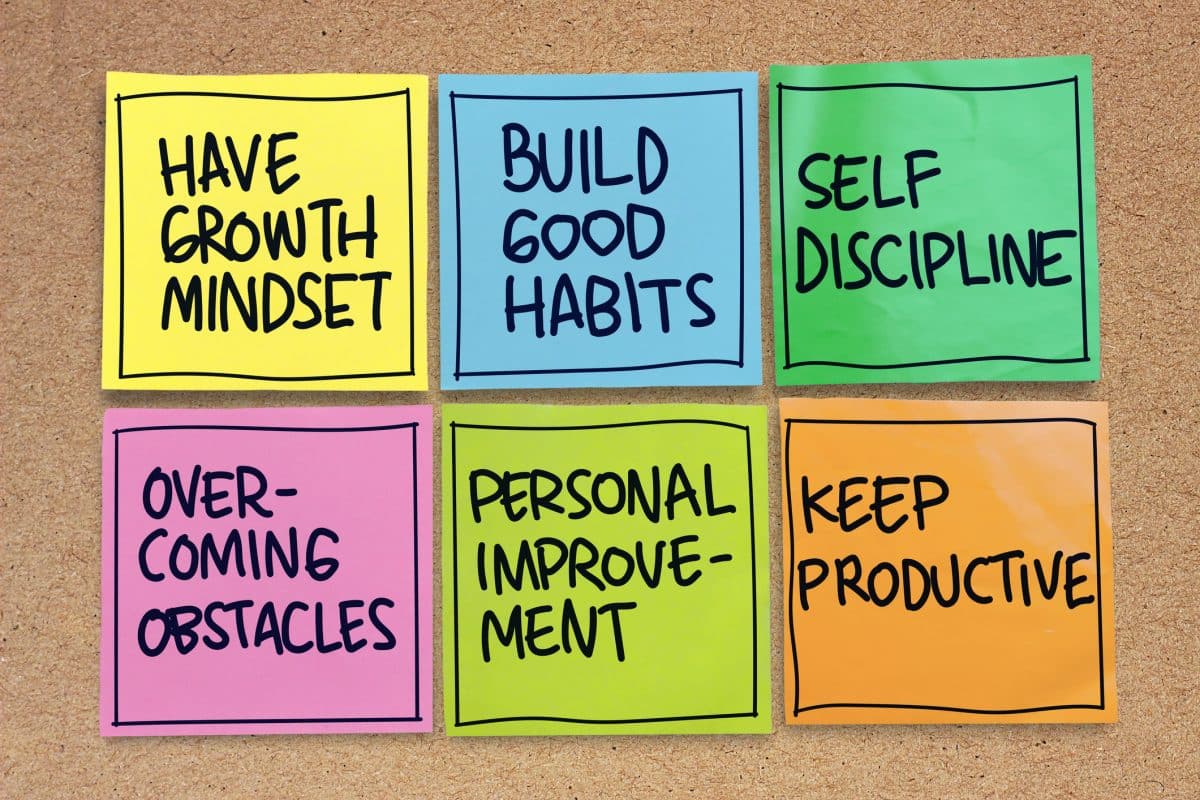
Understanding the Difference: Job vs. Career
A job is simply something you do for money. You show up, complete tasks, and collect a paycheck.
A career is a long-term endeavor that you build toward and work on every day. It’s the combination of roles, experiences, education, and pathways you take to achieve your professional goals.
While it’s perfectly acceptable to take a job to pay the bills, having a career goal provides direction and purpose. A career often gives you long-term financial security by encouraging you to build skills and continue learning to move up the career ladder. This usually translates to higher pay, better benefits, and increased job satisfaction over time.
Moving from viewing your path as just a job to a full career requires a mindset shift. A growth mindset not only sets you on a career path, but can help support your overall success in that career.
What is Growth Mindset?
Growth mindset was first defined by renowned psychologist and researcher Carol Dweck in her groundbreaking work on motivation and learning.
According to Dweck, people with a growth mindset believe that their abilities, intelligence, and talents can be developed through dedication, hard work, and learning from failure. They see challenges as opportunities to improve rather than threats to their self-image. In contrast, those with a “fixed mindset” believe their basic abilities are static traits that cannot be significantly developed.
In a growth mindset, people understand that effort and persistence lead to mastery. They embrace challenges, persist through obstacles, learn from criticism, and find inspiration in others’ success.
How to Demonstrate a Growth Mindset in Hardscaping
The framework of a growth mindset has profound implications for career development in any field, but it’s particularly powerful in skilled industries like hardscaping, where continuous learning and adaptation are essential for success.
“People that are pursuing professional development and growth and education, even on their own time, tells me that this is a person that genuinely wants to grow. Mindset is a key thing,” said Weston Zimmerman, founder of SynkedUP.
Zimmerman said he starts evaluating people in their interviews for this mindset. He focuses less on specific hardscaping skills and more for character traits. He wants to know whether the people he interviews see challenges as opportunities to grow or obstacles to complain about.
“Are they out there watching educational courses to learn a new skill? Do they read? Do they listen to podcasts? Or do they just want a 40-hour-a-week job to punch a clock?” he said. “I don’t hire clock punchers. I’m looking for is people that are hungry, that have a growth mindset. People that view the world as a smorgasbord of problems to solve, not a not a smorgasbord of things to claim victim to.”
Frank Bourque, a landscape and hardscape business consultant and founder of the Landscape & Hardscape Business Success Summit, also highlights the importance of professional development when showcasing a growth mindset. He recommends pursuing CMHA certifications, as well as attending events like the annual Hardscape North America trade show.
“One of the best investments you can make is attending training,” Bourque said. “If you go where the expert goes, this will not only position yourself in the industry, but it will show how much you care.”
Questions That Impress Employers
It’s not just your responses to questions in an interview that can show off your growth mindset and the actions you are taking to continue your skills development.
When interviewing for hardscaping positions, you can also show off your mindset by asking thoughtful questions.
Bourque suggests asking potential employers questions like, “Can you tell me more about what a successful job is to you? Is it one that’s profitable? Is it a job where we’ve met the timeframe? Is it a quality install? What does success mean for you on a job?”
These types of questions demonstrates that you understand the bigger picture and that you’re thinking beyond just collecting a paycheck to how you could play a role in that overall success.
Making the Shift from Job to Career
Every role can help you get closer to your career goals and contribute to your professional development.
The key is maintaining that growth mindset throughout your journey. Stay curious, remain solution-focused, and never stop learning.
“Once you’re hungry, the food’s out there,” Zimmerman noted.
The industry needs problem-solvers, leaders, and professionals who care about quality and continuous improvement.
By developing a growth mindset and committing to professional development, you position yourself as a valuable asset who can build a lasting, successful career in hardscaping.
